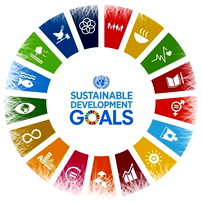 |
Winter Newsletter - Welcome to our first newsletter of 2020! Over the next few months we’ll be co-hosting a ‘Star Lecture’ in Brussels, followed by a Master’s Open Day and the first Health and Migration symposium at home in Maastricht. We also travel to Cameroon in February and Honduras in April for the next editions of our DEIP innovation series. - Through our research and training we explore the push and pull of international development: focusing on innovation through science and entrepreneurship (#SDG9), and governance through public policy analysis (#SDG16). |
|
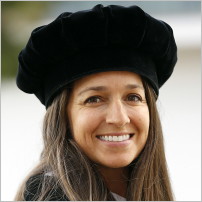 |
Upcoming Events - Prof. Melissa Siegel will cover a range of myths, misconceptions, and realities in the area of migration, including where policy often goes wrong in the next round of UM 'Star Lectures'. Set for 6 February 2020 in Brussels, this lecture is part of a series of lectures for alumni held in five countries and 14 cities at the same time on the same day. The aim is to reach and inspire alumni, share academic insights, experiences and memories, and so create a truly connected alumni community. - Our next Master's Open Day will be held on 7 March 2020 in Maastricht, with information sessions where visitors will be able to quiz staff, current students and alumni on every aspect of the programme. “This Master's not only equips you with the necessary tools and techniques, but it actually improves you, not only on your skills level, but on a very personal level,” said Mantej Pardesi from the 2018-2019 MPP cohort. - The first Health and Migration symposium, set for 3 April 2020 in Maastricht, will highlight the complex intersections between migration and health through discussions around both research and practice. The event will mark the official launch of the ‘Health and Migration Collaborative Community’ website, a growing resource portal that provides short analytical reviews and other support materials for academics, practitioners, policymakers, and other stakeholders interested in migration and health. The call for abstracts is open until 31 January 2020. |
|
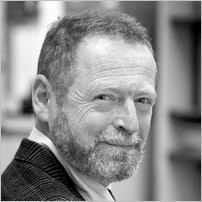 |
Latest News - It is with great sadness that we bring the news that Prof. Eddy (Adam) Szirmai passed away on 11 January 2020. Eddy was a true intellectual, born in an immigrant family with strong intellectual roots. During the 1960s and 1970s, he studied economics, history, literature, law and sociology, at Dartmouth, USA and Amsterdam, the Netherlands. He was an intellectual father figure in the institute, always ready to encourage PhD fellows and others by giving them suggestions and critique, as well as a pat on the back. His funeral will be held on 20 January 2020 at Oegstgeest, near The Hague. - We are pleased to announce that Dr. Carlos Cadena Gaitán, a graduate of our PhD programme, was named Transport Secretary for the City of Medellín, Colombia in early January 2020. Dr. Cadena Gaitán is a well-known transport and environmental activist. He is co-founder of La Ciudad Verde (the Green City) initiative, project coordinator of the Low Carbon City Forum, and various other artistic and cultural organisations. In recognition of his work, he received the ‘Future Sustainability Leader’ award in Oslo in June 2015, and was nominated for the ‘Inspired Leadership Award’ in London in June 2016. - In October 2019, the Royal Swedish Academy of Sciences awarded the Nobel Prize in Economics to Abhijit Banerjee (MIT), Esther Duflo (MIT) and Michael Kremer (Harvard) for their work to alleviate poverty. All three laureates were recognised for pioneering an approach to obtaining reliable answers to fight poverty across the globe. Esther Duflo is the youngest ever laureate, and the second woman to win after Elinor Ostrom a decade ago. We spoke to several researchers in the field of development economics including Franziska Gassmann, Eleonora Nillesen, Zina Nimeh, and Melissa Siegel to hear their initial thoughts. |
|
 |
Recent Publications - When it comes to progress in the science and technology sector, how wide is the gap between Istanbul and the rest of Turkey? A new report considers economic and social regional disparities and the concentration of economic activity. / Could there be a silver lining to the weakening of social and welfare policies worldwide? A new article pioneers an integrated perspective for understanding and measuring social innovation ecosystems. See our October 2019 roundup here. - Governments consult various groups when preparing their eco-innovation policies – but can these consultations truly safeguard the public interest? A new manual sets the standard for data collection, interpretation and policymaking to ensure a greener global economy. / Refugees in Uganda often look for jobs outside of camps and settlements – but what helps or hinders their search for work? What discrimination do they face and how much can they trust local employers? A new report considers the evidence from urban areas across Uganda. Read our November 2019 summary here. - Which countries are leading the fourth industrial revolution and which are being left behind? A new paper uses patent data to identify technology leaders and trade data to identify producers and users of these technologies. It then relates the use of these technologies to industrial development indicators. / What are the economics of Brexit? A new paper surveys the academic literature in terms of trade, migration and foreign direct investment, before considering the short-run effects of the vote and the expected long-term consequences of ‘Brexit proper’. See our first impressions from December 2019 here. |
|
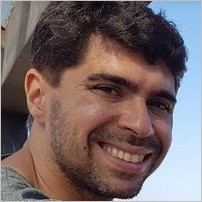 |
Application Deadlines - Apply by 15 February 2020 for our full-time PhD programme on Innovation, Economics and Governance for Development (IEGD). Our PhD fellows come from 38 countries including Bolivia, Iran, Vietnam and Zimbabwe. Upon graduation, they go on to work at the highest of levels: from the OECD in Paris, to UNICEF in Florence, to UNIDO in Vienna; across government ministries in Ecuador, Peru and beyond; and at top universities like Oxford, Cape Town and MIT. - Find out more about our full-time PhD fellows, from their research themes to career ambitions via our 'PhD Profiles' series. Recent contributions include Patima Chongcharoentanawat from Thailand, who said: “Results gathered in my thesis suggest that Thailand still needs to overcome several challenges to transform the country into an inclusive and open society where everyone has an equal opportunity to prosper… For my part, I hope to use all the knowledge, skills and professionalism gained during at UNU-MERIT to contribute to the benefit of my country.” - We also heard from Danilo Sartorello Spinola of Brazil, who said: “UNU-MERIT is world renowned, especially in my field of innovation. If you go to REPEC, you can see that we are among the top five institutes in the world. I think that strength comes from our staff and the amount of time we invest in each other. For example, at one point in my PhD I felt a little stuck, which is not unusual. So I went to Bart Verspagen, our director who is also my supervisor, and we had a four-hour conversation in which we tried to figure it out a way forward based on the literature, different models and econometrics.” |
|
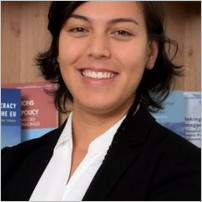 |
Alumni Activities - At every Master’s Open Day, we welcome prospective students and give them a general overview of the programme and its seven specialisations. We also invite alumni back to share how the programme prepared them to kick-start their careers in international development. On our last Open Day in November 2019, we caught up with four alumni from different cohorts who reflected on the programme and their careers. - Tim van Wanroij said: “Everything I learned here shaped me as a person and gave me the fundamental tools to approach public policy challenges. I did my Bachelor in Economics and I often say that I learned more in the one-year MPP than in my three-year bachelor’s. It allowed me to focus on the content, organise processes regarding stakeholder management, analysis and policy implementation. I always encourage people who want to work in local government to come to UNU-MERIT and do the MPP.” - Fanny Trang said: “Having worked in in journalism for a couple of years before coming here, the MPP at UNU-MERIT really opened up for me a whole new field of public policy and governance, which I wanted to work in. The programme was my entry ticket into this field. I have since managed to work in various positions like the UK Embassy in Paris and now the CEPS [Centre for European Policy Studies] in Brussels. Without the mixed background of journalism and public policy, I wouldn’t have been able to enter this market.” |
|
 |
Multimedia - See our recent article on the UN space internship completed by alumnus Erik Meis, who said: “I am thankful to have had the opportunity to so closely experience and contribute to the disaster management of a wide variety of hazards. It's inspiring to see the potential of satellite-based Earth observation, and how researchers and policymakers can work together to mitigate the damage caused by these weather events. This internship has taught me about the gap between research and policy – and how vital closing the gap is for disaster management.” - Also check the backstory to the political empowerment of women in Africa; and why safe toilets are a matter of life and death across India and beyond. Until next time, in early April, please check our social media accounts on Facebook, LinkedIn, Twitter and YouTube – where you can already see a recap from our conference on waste management in Ghana. You can also stay up-to-date on all our major publications via our monthly ‘First Impressions’ roundup. |
|
- ABOUT US
- RESEARCH
- EDUCATION
- The Graduate School
- PhD Programme
- MSc Programmes
- Capacity Development
- News
- Design and Evaluation of Public Policies (DEPP)
- Design and Evaluation of Innovation Policies (DEIP)
- Evidence-Based Policy Research Methods (EPRM)
- Migration Management Diploma Programme (MMDP)
- Moving the Migration Policy Agenda Forward (MMPAF)
- Online Courses
- Short Courses (Masters)
- Tailor-made programmes
- UNU-MERIT, ITU Academy Training Centre
- Alumni
- Academic Funding
- NEWS
- EVENTS
- PUBLICATIONS
- LIBRARY





